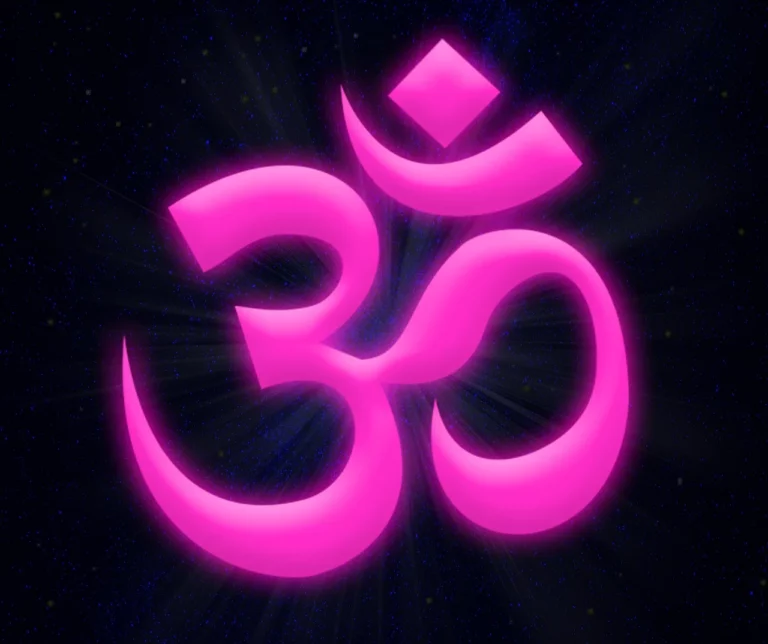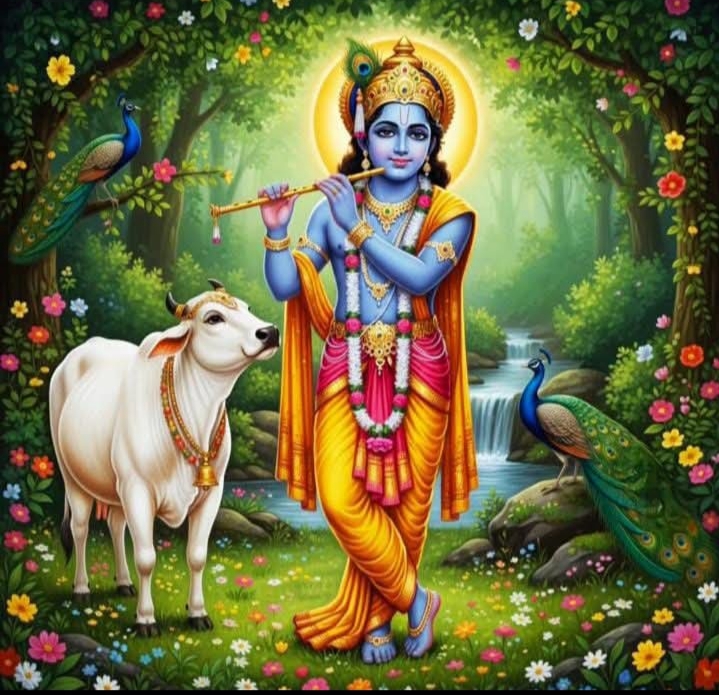मैं नहीं सोचता कि मैं उसे भलीभांति जानता हूं न ही मैं ऐसा सोचता हूं कि मैं उसे नहीं जानता
यही है रहस्य। मैं नहीं कह सकता कि मैं उसे भलीभांति जानता हूं क्योंकि जानने को बहुत शेष बचा है, और हमेशा और बहुत जानने को शेष बचा ही रहेगा। यह ब्रह्म को जानना, इसकी हमेशा सिर्फ शुरुआत होती है, लेकिन कोई अंत कभी नहीं आता। तुम एक बार प्रारंभ कर दो बस, फिर यह चलता चला जाता है।
इसलिए मैं नहीं कह सकता कि मैं उसे भलीभांति जानता हूं
यह दावा गलत ही होगा… न ही मै ऐसा सोचता हूं कि मैं उसे नहीं जानता.. यह विपरीत बात भी सच नहीं है। मैं यह भी नहीं कह सकता कि मैं उसे नहीं जानता— मैं उसे जानता भी हूं।
यही अंतर है ग्रीक तथा भारतीय चित्त में। ग्रीक चित्त इस वाक्य को कभी नहीं समझ सकता है। अरस्तु के लिए यह वाक्य सोच पाना असंभव है। अरस्तु कहेगा, ”यह तर्क का बुनियादी सिद्धात है कि यदि तुम जानते हो तो तुम जानते हो; और यदि तुम नहीं जानते हो तो नहीं जानते हो, इसके बीच में कुछ भी नहीं हो सकता है। ”
यदि तुम जिंदा हो तो जिंदा हो, यदि तुम मृत हो तो तुम मृत हो। इन दोनों के बीच में कुछ भी नहीं हो सकता है। या कि हो सकता है? क्या तुम कह सकते हो, ”मैं नहीं कह सकता कि मैं जीवित हूं और मैं यह भी नहीं कह सकता कि मैं मर गया हूं ‘? तब अरस्तू कहेगा, ”तुम्हारा दिमाग खराब हो गया है। दोनों में से एक ही बात सही है—दोनों बातें सही नहीं हो सकतीं। ”अरस्तु कहता है, ”दोनों बातें सही नहीं हो सकतीं, दो विपरीत बातें सत्य नहीं हो सकतीं। केवल एक ही सत्य होगी।”
उपनिषद का यह ऋषि कहता है, ”मैं नहीं कह सकता कि मैं जानता हूं। ”
तो फिर अरस्तू कहेगा, ”रुको, बात खतम हुई। यदि तुम नहीं कह सकते कि जानते हो, तो खतम करो बात को।”
लेकिन ऋषि फिर आगे यह भी कहता है, ”मैं यह भी नहीं कह सकता कि मैं नहीं जानता हूं।” इस बात को अरस्तू स्वीकृति नहीं दे सकता।
पश्चिमी तर्क का जनक, उसको संस्थापित करने वाला अरस्तु ऐसी बात के लिए स्वीकृति नहीं दे सकता। वह कहेगा, ”अब तुम्हारा दिमाग खराब हुआ जा रहा है। ”क्या तुम कह सकते हो कि तुम कमरे के भीतर हो? तुम नहीं कह सकते हो। और तुम यह भी नहीं कह सकते हो कि तुम कमरे के बाहर हो। या तो तुम कमरे के भीतर हो या तुम कमरे के बाहर हो—दोनों सत्य नहीं हो सकते हैं।
क्या तुम कह सकते हो, ”मैं नहीं कह सकता हूं कि मैं कमरे के भीतर हूं और मैं यह भी नहीं कह सकता हूं कि मैं कमरे के बाहर हूं ”? हमें भी यही सही दिखता है। अरस्तू सही दिखता है। सामान्य मन के लिए, साधारण तर्क के लिए वह बिलकुल ठीक है; तर्कसंगत है।
इन अर्थों में भारतीय ऋषि अतर्कसंगत हैं। वे विरोधी बातें एक साथ कहे चले जाते हैं, लेकिन इसके माध्यम से उन्हें कुछ संप्रेषित करना है। वस्तुत: वे गलत नहीं हैं।
उनके पास कहने को कुछ है और वह ‘कुछ’ इतना रहस्यपूर्ण. है कि उसे केवल तभी कहा जा सकता है जब विरोधी बातें एक साथ कही जाएं।
रहस्य केवल विरोधों के माध्यम से, असंगतियों के माध्यम से ही कहा जा सकता है।
मैं नहीं सोचता कि मैं उसे भलीभांति जानता हूं न ही मैं ऐसा सोचता हूं कि— मैं उसे नहीं जानता; फिर भी मैं जानता भी हूं।
”एक अर्थ में मैं उसे जानता हूं और एक अर्थ में मैं उसे नहीं जानता। मैं जानता हूं क्योंकि मैं उसका ही एक हिस्सा हूं। यह असंभव है कि मैं उसे नहीं जानूं। और मैं उसे नहीं जानता क्योंकि अंश समग्र को कैसे जान सकता है? यह बात असंभव है एक अंश के लिए कि वह समग्र को जान सके।”
दोनों ही बातें सही हैं। और यदि तुम्हें दोनों बातें ठीक प्रतीत होती हों तो इन दो विरोधी बातों के बीच एक नया ही अर्थ निकलता मालूम पड़ेगा।
तुम्हें प्रतीति होगी कि ऋषि आखिर क्या कहना चाहता है। और तुम्हें यह भी महसूस होगा कि उसे अभिव्यक्त करना कितना कठिन है। बहुत कुछ प्रतीति हो रही है और शब्द उतना अधिक नहीं ले जा सकते, इसलिए दोनों विरोधों की जरूरत है कि उस बात को कह सकें।
उदाहरण के लिए, उपनिषद कहते हैं, ”परमात्मा बहुत दूर है। ” और फिर तुरंत वै यह भी कहते हैं, ”वह बहुत निकट है। ”
यदि वह दूर है तो निकट कैसे हो सकता है? अथवा यदि वह निकट ही है तो दूर कैसे हो सकता है? लेकिन उनके पास कुछ कहने के लिए है, और वह बहुत महत्वपूर्ण बात है। इस बेतुकी बात से वे उसको संप्रेषित करने की कोशिश कर रहे हैं जिसे कि संप्रेषित —करना आसान नहीं है, जिसे कि संप्रेषित किया ही नहीं जा सकता। वह बहुत दूर है क्योंकि तुम उसे भूल चुके हो। वह विस्मृति ही दूरी निर्मित करती है। और वह बहुत निकट है, क्योंकि जो कुछ भी तुम करते हो चाहे तुम उसे भूलो, चाहे स्मरण करो, तुम उसके बिना जीवित नहीं रह सकते। वही तुम्हारे हृदय कोई धड़कन है। वही भीतर और बाहर सांस ले रहा है; वही तुम हो। तुम उसे भूल सकते हो, लेकिन फिर भी तुम वही रहते हो।
इसीलिए यह विरोधाभासी कहने का ढंग चुना गया है : ”वह दूर भी है, और निकट भी, ”और, ”मैं उसे जानता हूं और मैं उसे नहीं जानता।”
उपनिषद सुकरात से सहमत नहीं होंगे ‘ मैंने तुमसे कहा कि सुकरात ने कहा था, ”कभी पहले मैं जानता था; अब मैं कहता हूं कि —मैं नहीं जानता। ” वह पुन: यूनानी ढंग ही अपना रहा है। वह बहुत संगत है। वह कहता है, ”एक बार मुझे महसूस हुआ था कि मैं जानता हूं। लेकिन अब मुझे प्रतीत हो रहा है वह बात गलत थी—अब मैं नहीं जानता हूं। ”उपनिषद कहेंगे कि दोनों ही बातें गलत हैं। एक तीसरी संभावना भी है जबकि तुम कहो, ”एक तरह से मैं जानता हूं एक तरह से मैं नहीं जानता हूं। ” पहले सुकरात परम ज्ञान का दावा कर रहा था, अब वह परम अज्ञान का दावा कर रहा है। लेकिन दोनों ही हालत में वह परम का दावा करता है। वह परम को पकड़े हुए है; वह विरोधाभासी नहीं है। एक बार उसने कहा, ”मैं जानता हूं ”अब वह कहता है, ”मैं नहीं जानता। ”उपनिषद के ऋषि दोनों बातें युगपत कहते हैं : ”मैं जानता हूं और मैं नहीं जानता हूं। ” दोनों के बीच की बात को महसूस करने का प्रयत्न करो, दो पंक्तियों के बीच… ठीक अंतराल में।
हममें से वही उसे जानता है जो जानता है कि वह अज्ञात और ज्ञात दोनों से भित्र है।
जो ज्ञात है वह तुम्हारा ज्ञान है, जो अज्ञात है वह तुम्हारा अज्ञान है। यदि तुम कहते हो, ”मैं जानता हूं ” तुमने उसे ज्ञात बना दिया। यदि तुम यह कहते हो, ”मैं नहीं जानता, ” तुमने उसे अज्ञात बना दिया। और तुममें से वास्तविक ज्ञानी केवल वही है, जो कि जानता है कि न तो वह ज्ञात है और न अज्ञात है, बल्कि अज्ञेय है। वह रहस्य है।
केवल वही जो कि उसे एक रहस्य की भांति जानता है, एक परम रहस्य की भांति, एक आत्यंतिक रहस्य की भांति जो कि कभी खोला नहीं जा सकता, केवल वही उसे जानता है।





















